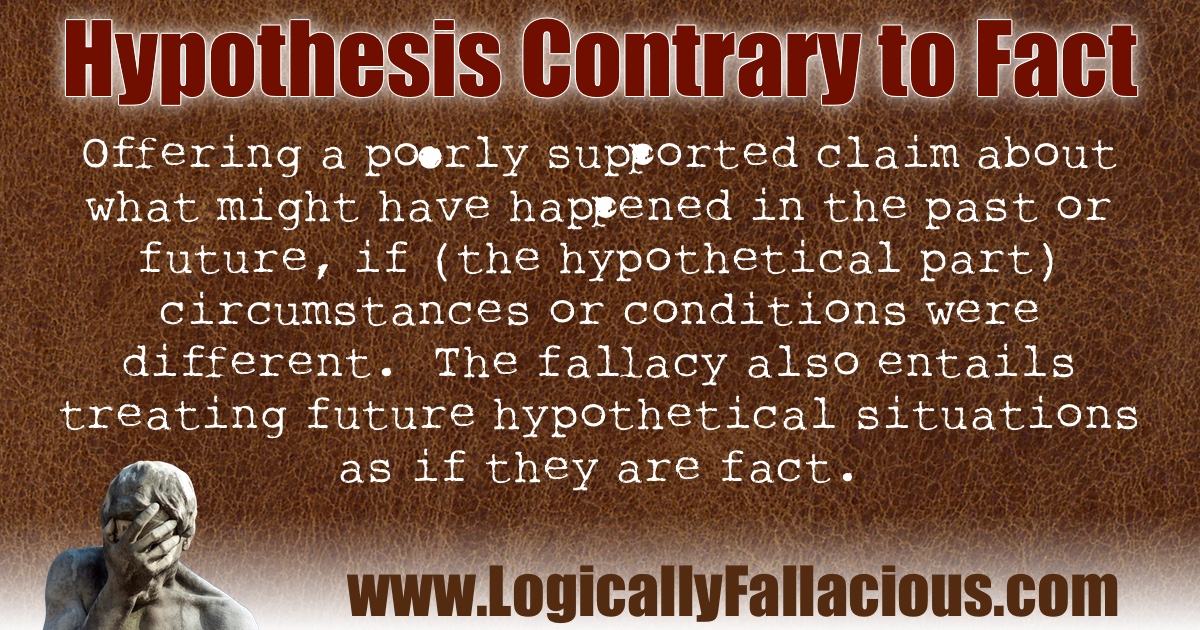(also known as: counterfactual fallacy, speculative fallacy, "what if" fallacy, wouldchuck)
Description: Offering a poorly supported claim about what might have happened in the past or future, if (the hypothetical part) circumstances or conditions were different. The fallacy also entails treating future hypothetical situations as if they are fact.
Logical Form:
If event X did happen, then event Y would have happened (based only on speculation).
Example #1:
If you took that course on CD player repair right out of high school, you would be doing well and gainfully employed right now.
Explanation: This is speculation at best, not founded on evidence, and is unfalsifiable. There are many people with far more useful talents who are unemployed, and many who are “gainfully” employed who are not doing well at all. Besides, perhaps those with certificates in compact disc repair are gainfully employed... at McDonald’s.
Example #2:
John, if you would have taken a shower more often, you would still be dating Tina.
Explanation: Past hypotheticals that are stated as fact are most often nothing more than one possible outcome of many. One cannot ignore probabilities when making these kinds of statements. Perhaps Tina likes the smell of man sweat. Perhaps Tina would have still preferred Renaldo over John despite John's personal hygiene because of Renaldo's enormous intellect.
Exception: In either/or situations, general predictions can obviously be made without fallacy:
If you didn’t flip heads on the coin, it would have been tails.
Fun Fact: Right out of college, with a degree in marketing, I worked at the Olive Garden (an Italian-like semi-fast food chain here in the States). Perhaps I should have opted for the CD repair right out of high school and saved $120,000. I am pretty sure the Olive Garden would have still hired me.
